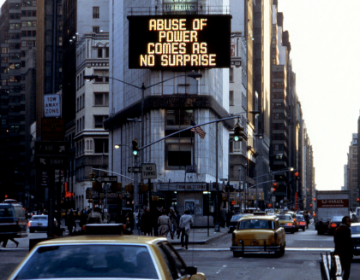
The Political Utility of Reading Literature
There's a high school English course that I still think about, to this day. It was an honors English class taught in 1978 by Dan Ward, an irascible, chain-smoking, mustachioed teacher at Cedar Shoals High School in Athens, Georgia. I think there were six or seven of us and we met in the very smoky teacher’s lounge.
I don't know why, but Mr. Ward compiled a list of dystopian novels for us to read. In retrospect, I’m not sure that a handful of high school juniors and seniors in late 1970s Athens needed to read such stark fiction, but Mr. Ward was right since it was totally gripping in a kind of awakening, awful way…
We read A Canticle for Leibowitz, by Walter Miller – a loopy, kooky, marvelous bit of dystopia if ever there was any. To really bring us right down, we also read We, by Yevgeny Zamyatin, and Anthem, by Ayn Rand, a novella that was a little easier to digest in an academic semester than something like Atlas Shrugged. I think we probably also read Orwell’s 1984 if we hadn't already done so in another class. There was also some Vonnegut.
This is what I looked like at the time. Please note the very fine ruffled tuxedo shirt and oversized velvet bowtie…

Daniel Press, circa 1978. I worked the prom season at Kennon’s Formal Wear, thereby getting access to the best in their collection. . .
We were then given writing assignments prompting us to try our own hands at utopic or dystopic fiction. Somehow, I picked up some Mother Earth News publications and tried imagining some kind of ecotopia, though what I produced was nothing as interesting as what Ernest Callenbach had published just a couple of years earlier! Still, I think that the whole exercise got me thinking about community, politics, and environment, and probably influenced my graduate studies a decade later.

Mother Earth News, No. 26, 1974
Reading dystopic novels meshed well with my father’s politics, which he passed on to me. He grew up in a Jewish orphanage in San Francisco in the 1930s and 40s. His politics were skeptical, pretty dark, left of center, and distrustful of dogma. He liked the way artists and writers created political ephemera to express their outrage or demands. A photo that Dad displayed prominently in his bookstore in the 1980s depicted artist Jenny Holzer’s 1982 billboard for Times Square. Here it is:

Jenny Holzer’s Abuse of Power Comes as No Surprise, 1982
Dan Ward’s English class and my Dad's political ephemera shaped my appreciation for the humanities as politically useful. That is, very early on, I surmised that the study of literature was not just entertaining or interesting. Rather, my family and teachers transmitted to me the notion that the fiction and nonfiction I was exposed to equipped me with tools for survival in a dangerous, unstable, unpredictable world. I don't think I was ruined for a good story (!), but I'm grateful for this perspective of the humanities as “counting” for all that matters – a career, sure, but also, quite simply, a future fit for…humanity.
